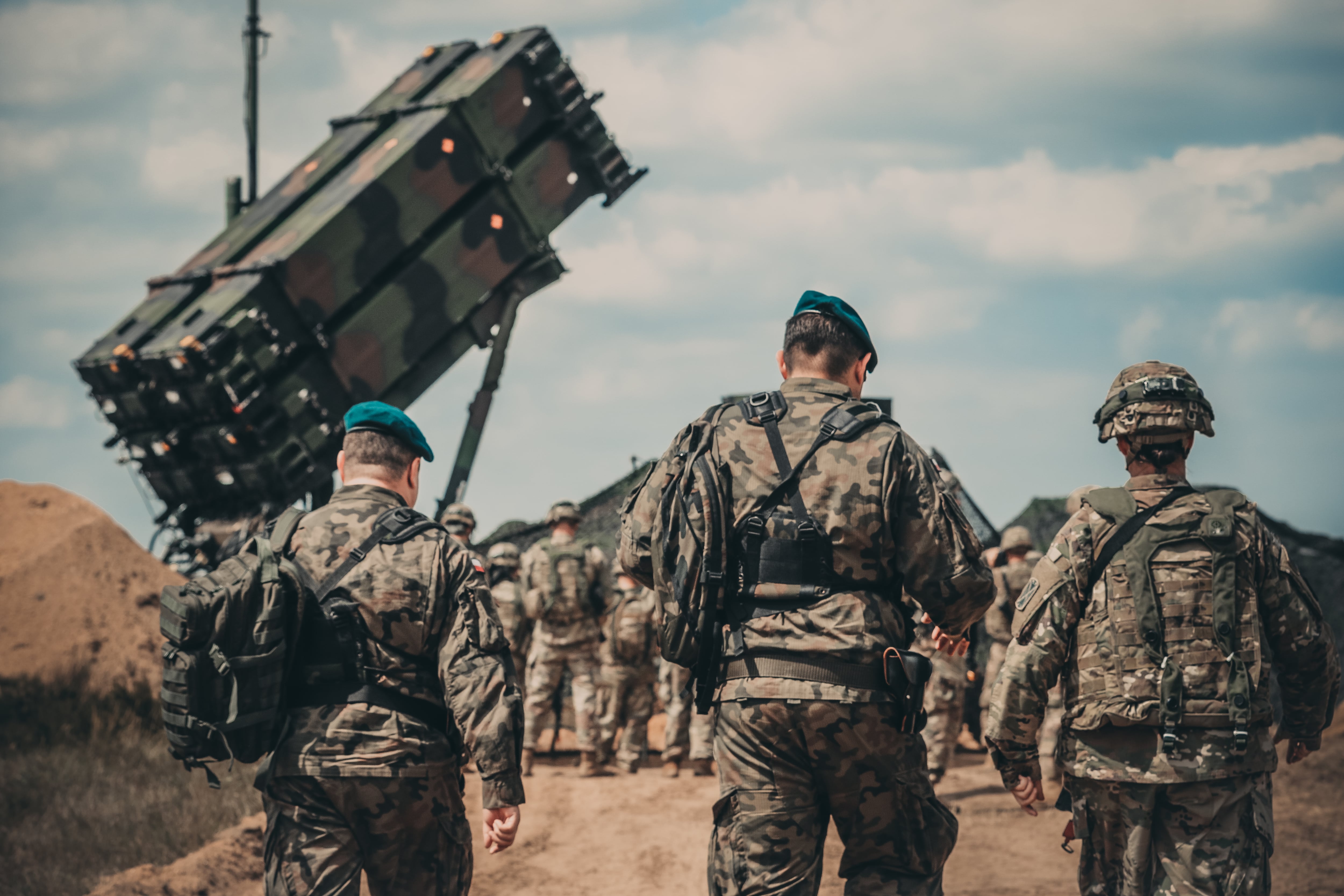WASHINGTON — Russia’s invasion of Ukraine has drawn new attention to the cruise and ballistic missile threat in the European theater, prompting House lawmakers to push for a fresh look at U.S. Army requirements for Patriot air-and-missile defense systems.
“The secretary of the Army should reassess the current Patriot missile defense battery and interceptor acquisition objectives,” the House Armed Services Strategic Forces subcommittee mark of the fiscal 2023 defense authorization bill states.
Should the language become law, the Army secretary would be required to submit a report on the validity of current Patriot acquisition objectives within 150 days of enactment, according to the mark.
The Army is preparing to slowly replace Patriot with a future Integrated Air-and-Missile Defense System. The service has already received the first Raytheon Technologies-made Lower-Tier Air-and-Missile Defense Sensors (LTAMDS) set to replace the current radar in Patriot and is testing it out at White Sands Missile Range, New Mexico.
And the service is nearing a full-rate production decision for the brains of the future missile defense system — the Integrated Battle Command System, or IBCS. The system, developed by Northrop Grumman, is in the midst of the initial operational test and evaluation process.
Patriot will continue to serve in the force for years to come as the Army transitions to the future system and it remains in the inventory of 17 partnered and allied countries, many in Europe.
Indeed, Patriot units in the U.S. Army have the highest operational tempo of any unit across the force, are deployed globally, and the service continues to see high demand despite efforts to alleviate some of the pressure on the units.
Previous U.S. Army Europe commander Lt. Gen. Ben Hodges has said air-and-missile defense capability was the most significant gap he faced while leading the Army in the theater. While several other capability gaps were shored up, the need for more robust ballistic missile defense remains.
Included in an aid package for Ukraine, requested by the president and approved by Congress, was funding for some components for a 16th Patriot battery, which is one battery above the Army’s requirement of 15.
The Army’s requirement for Lockheed Martin-made Patriot Advanced Capability-3 Missile Segment Enhancement interceptors is 3,376. The service has already triggered a development effort to replace PAC-3 MSE missiles with a future capability.
The subcommittee’s mark also directs the Army secretary to provide a report no later than Dec. 1, 2022, on Patriot obsolescence issues and how those could be fixed within the Patriot modernization program
“The committee is encouraged by the Army’s commitment to the Lower Tier Air and Missile Defense Sensor (LTAMDS) program as the premier radar of the service’s next-generation integrated air and missile defense strategy,” the subcommittee writes.
“However, the committee is also cognizant of the need to continue investing in Patriot system and missile modernizations as it will take at least [seven] years for the Army to field its total requirement of the Integrated Air and Missile Defense Battle Command System (IBCS), and at least 11 years to fully field LTAMDS,” it continues.
Many countries are already eyeing or in the process of upgrading Patriot systems. Poland, in particular, has requested its initial Patriot systems have IBCS and that its next increment of batteries have LTAMDS instead of the Patriot’s legacy radar.
Raytheon had run into COVID-19 supply chain problems building the first prototypes of the LTAMDS, but the service is still aiming to field four of them by the end of 2023. The Army is planning a production decision for the sensor in the first quarter of FY24, according to FY23 budget documents.
Jen Judson is an award-winning journalist covering land warfare for Defense News. She has also worked for Politico and Inside Defense. She holds a Master of Science degree in journalism from Boston University and a Bachelor of Arts degree from Kenyon College.





